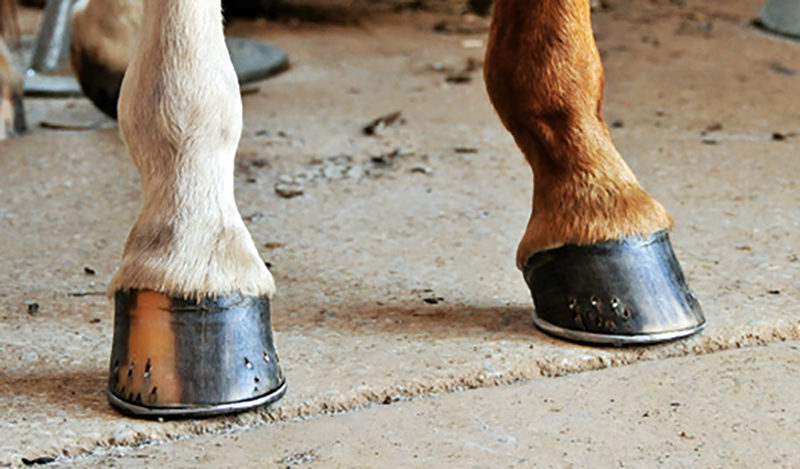American Farriers Journal
American Farriers Journal is the “hands-on” magazine for professional farriers, equine veterinarians and horse care product and service buyers.

Proper equine nutrition is pivotal in support of healthy feet and joints. However, it’s not always attainable without some help.
There are a number of supplements on the market today that help horse owners provide an adequate and balanced diet with the goal of improving hoof strength and growth, as well as protecting joints from wear-and-tear problems.
Equine nutrition experts offer advice that farriers can pass onto their clients on what to look for — and what to avoid — in a supplement that benefits feet and joints.
“The better the hoof, the more the farrier has to work with,” says Scott Gravlee, equine nutrition consultant with Life Data Labs. “It’s easier to keep the client happy by doing a better job.”
And a farrier usually is the first to notice indications of nutritional deficiency.
“The horse’s foot is the last in line to get any nutrition,” says Susan Roberts of Maximum Performance. “If nutrition is short, the foot is the first place it shows up.”
When a horse is overweight, it might be advisable to eliminate all grain because of the extra calories, sugars and starches that many of them provide, says Jessica Normand, SmartPak’s national director of equine health education.
The equine foot is the last to receive nutrition and the first to indicate a deficiency.
Biotin-based supplements might be necessary when hoof wall quality and growth are unsatisfactory despite a horse’s basic nutrient needs are met with forage, a vitamin-mineral supplement…